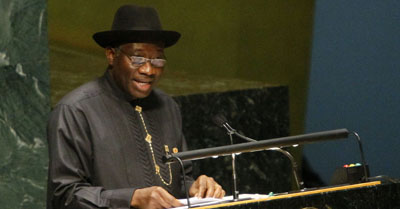There is a deserved celebration in the Nigerian media over the recently passed Freedom of Information Act, which provides citizens with broad access to public records and information held by a public official or institution. It is the climax of an 11-year struggle to pass such a law in the Nigerian parliament. Indeed, the call for such a law was first made under military rule, in 1993, when the Nigeria Union of Journalists, Civil Liberties Organisation, and the Media Rights Agenda began to clamor for it.
Coordinated agitation for such legislation, however, commenced under civil rule in December 1999 when two legislators in the lower house of the bicameral legislature, the House of Representatives, introduced a private members’ bill calling for a right of access to public records. The bill, however, failed because of the perception that it was a grand agenda of the ethically wayward media to further strengthen itself as a weapon of terror. With the legislative life of the Assembly ending in 2003 without the much-sought enactment, the struggle began anew.
Commendably, the FOI coalition, established in 2000 to sensitize the public to the merits of the bill, began to broaden its appeal to address the perception that the legislation was simply for the media. The effort yielded some fruit; the National Assembly passed the FOI bill in 2007, although then-president Olusegun Obasanjo withheld his assent on grounds that it did not adequately address some security considerations.
That second setback meant once again that the whole process of legislation had to commence anew. President Goodluck Jonathan’s assent of May 28 has rekindled hope in Nigeria’s commitment to openness in governance.
In providing broad right of access, clear procedures to follow and establishing exceptions in acknowledgement that no right is absolute; the legislation is a good starting point. Coming from a culture that brands the most innocuous public information as “secret,” the new law elevates Nigeria’s public information management and record-keeping to all-time revolutionary pedestals.
In Section 3, public institutions are mandated to provide detailed description of their corporate profiles, programs and functions of each division, lists of all classes of records under their control, and related manuals used in administering the institution’s programs. They are to provide public access to documents containing final opinions, including concurring and dissenting ones; orders made in the adjudication of cases, and those covering policies, contracts, receipts, or expenditure; and reports and studies conducted by the institutions.
The law directs public institutions to ensure that the public’s right of access to information shall not be prejudicially affected by the institutions’ failure to publish any information under this subsection. Although Section 12 (1) excludes information that may be injurious to the conduct of Nigeria’s international affairs and defense, no application for information shall be denied where “the public interest in disclosing the information outweighs whatever injury that disclosure would cause.” In other words, the onus is on the public agency to establish why the information should not be released. There are provisions for seeking redress for denied applications and penalty for wrongful denials.
In endorsing the people’s right to know, the FOI Act acknowledges that sovereignty belongs to them, and that the quality of information available in a community leverages the quality of their participation in public affairs. Extreme secrecy in governance and a poor information flow breeds suspicion and misunderstanding among the populace and prevents the necessary cooperation for development.
For the law to achieve its objectives of a more open and transparent society, the public must move beyond the current euphoria that the legislation is the cure-all for hoarding of information. There is urgent need to come to terms with the provisions of the law and the challenges to overcome if despondency is not to set in.
The first challenge is to reorient public officers to appreciate the new reality that information is a developmental tool that must be freely available. The second is to facilitate the administrative machinery to bridge the gulf between policy formulation and implementation. Third, considering the office of the attorney general is saddled with the responsibility of monitoring compliance of public institutions with the law and informing the National Assembly annually of progress so made, the personality of the occupant is crucial.
Fourth, since the attorney general is the president’s appointee, much will depend on the vigilance of the legislature, the media and civil society groups. The legislature must demand that the attorney general be alert and responsive to the provisions of the law. The media must play up its educational role of explaining the provisions of the law to galvanize citizen action. It needs to creatively exploit the law to unleash the best traditions of investigative journalism to provide the day’s intelligence thoughtfully and meaningfully.
Fifth, the lesson of the sustained agitation is that an organized people can always push through an idea whose time has come. Openness and transparency as they advance good governance are the minimum requirements in any decent society today. The coalition of interest groups that fought for the FOI Act has more work ahead, teaching the public how best to utilize the law.
